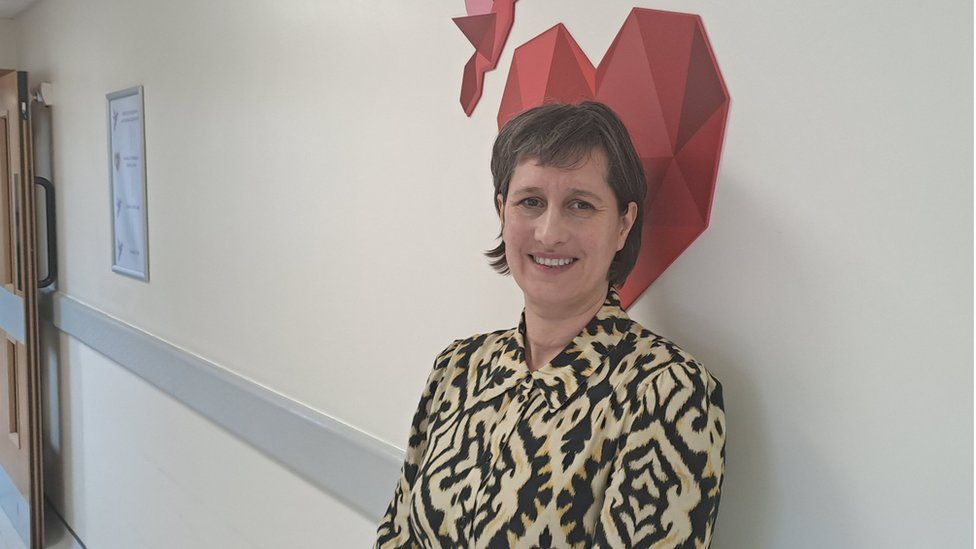Surrey consultant calls for more women's medical research
- Published

A cardiologist has called for more women to take part in medical research to improve heart health.
Dr Lydia Sturridge, a consultant at Frimley Health NHS Foundation Trust in Surrey, said she had been unable to recruit any women for a new trial.
Women face additional heart risks posed by pregnancy and menopause.
But Dr Sturridge said increased research could lead to "different practices, different diagnostics and different treatment practices".
Making the call on International Women's Day, she noted a recent study by the British Heart Foundation.
It found historically two-thirds of all clinical research had been carried out on men, with women under-represented in cardiovascular trials.
The charity also found that women were 50% more likely than men to receive the wrong initial diagnosis for a heart attack.
Greater awareness needed
Calling for greater awareness, Dr Sturridge also said common reasons women were less likely to be involved in research were "not really surprising".
"Women are more often in these caregiving roles and so really time-poor."
She is the principal investigator for a trial at Frimley Health that aims to identify patients who could benefit from a implantable defibrillator to help prevent potential cardiac arrest.
But despite "trying really hard", Dr Sturridge said she had been unable to recruit any women.
She suggested consultants may also need to adapt to attract greater numbers.
"Maybe we need to be more flexible in how we look at trial design - make them evening appointments, more flexibility, financial support for attending," she said.
"If we could get more equitable women in trials...to really try and address the balance, it's almost certainly going to change into different practices, different diagnostics, different treatment strategies."
"When we understand the differences, we can then change tact and make it better."
Follow BBC South East on Facebook, on X, and on Instagram. Send your story ideas to [email protected] or WhatsApp us on 08081 002250.
Related Topics
- Published4 March
- Published15 February
- Published28 December 2023